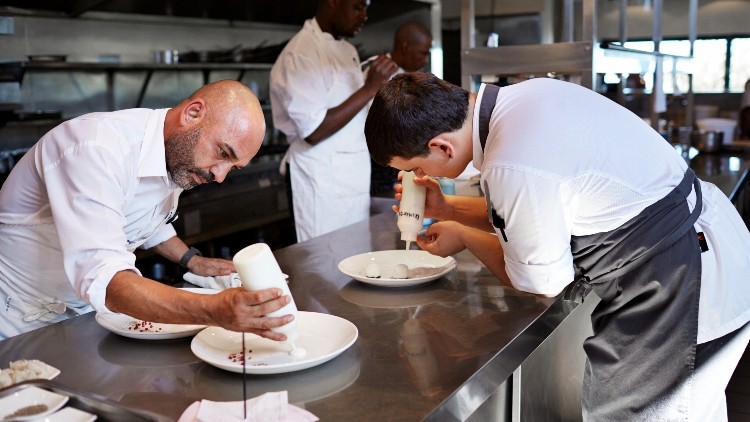How can pubs work with the post-Brexit immigration system?

Boyles Turner head of immigration Chris Harber and the Grove HR director Danielle Michaels gave a comprehensive overview of how the immigration system had changed over the past five years.
This comes after operators cited recruitment as one of their toughest challenges, with one in three hospitality businesses forced to reduce trading hours last year due to staff shortages.
Since Brexit, all VISA rules apply regardless of the country, but freedom of movement is restricted. The Resident Labour Market Test has been scrapped, and sponsorship is offered for a lot more roles – you can effectively recruit from a junior level upwards.
Furthermore, the immigration system has become more digitised since Brexit.
Who can you sponsor?
The roles you can sponsor include chefs (all positions in the kitchen above commis chef), manager and assistant manager positions across the business, massage therapists, greenkeepers and marketing, accounting & HR talent roles.
Positions you are not able to sponsor include cooks, receptionists, waiting and bar staff, beauty therapists and housekeepers. Sommeliers were not strictly able to be sponsored but could be hired as bar managers.
Under the points-based immigration system, with the exception of Irish citizens, anyone coming to the UK for work must meet a specific set of requirements for which they will score points. Visas are then awarded to those who gain enough points. A total number of 70 points is needed to come and work in the UK.
Under the Skilled Worker route, anyone you want to hire from outside the UK will need to demonstrate that:
- they have a job offer from a Home Office licensed sponsor
- the job offer is at the required skill level – RQF 3 or above (A Level and equivalent)
- they speak English to the required standard
In addition to this, the job you are offering must meet the applicable minimum salary threshold. This is the higher of either:
- the general salary threshold of £25,600, or
- the specific salary requirement for their occupation, known as the ‘going rate’
Applicants can trade characteristics, such as their qualifications, against a lower salary to get the required number of points. If the job offer is less than the minimum salary requirement, but no less than £20,480, an applicant may still be eligible if they have:
- a job offer in a specific shortage occupation
- a PhD relevant to the job
- a PhD in a STEM subject relevant to the job
VISA fee structure
The visa fee structure for out of country includes several charges. This includes a £199 certificate of sponsorship, a £1,000 per year immigration skills charge (£364 a year for small businesses) and a £624 per year immigration health surcharge.
There’s also a visa application fee of £625 per applicant for visas for less than three years, which rises to £1,235 per applicant for visas for three to five years. In addition, there’s an optional priority service cost of £250.
For in country fees the certificate of sponsorship, immigration skills charge and immigration health surcharge costs the same. However, the visa applicant fee is £719 per applicant for visas for less than three years, and £1,423 per applicant for visas for three to five years. The optional priority service charge in this scenario is £500.
The sponsor must cover the cost of the certificate of sponsorship and the immigration skills charge. The immigration health surcharge, visa application fee, priority fee and any legal fees can be managed as the sponsor sees fit.
Working together
This could be through splitting the costs with the applicant, clawing back clauses in the employment contract, recovering costs through salary or through the applicant paying for their family.
What’s more, the immigration skills charge is part refunded if the applicant leaves during their visa.
Turner gave an example scenario. If you were sponsoring a chef who was applying from outside the UK with their spouse for a five-year visa, using the priority service, Government fees may come to £14,409.
As the sponsor, you are responsible for £5,199 and you may agree to claw back the other costs from the applicant over the course of the five years. The applicant is liable for £9,210 which equates to £153.5 a month salary reduction.







